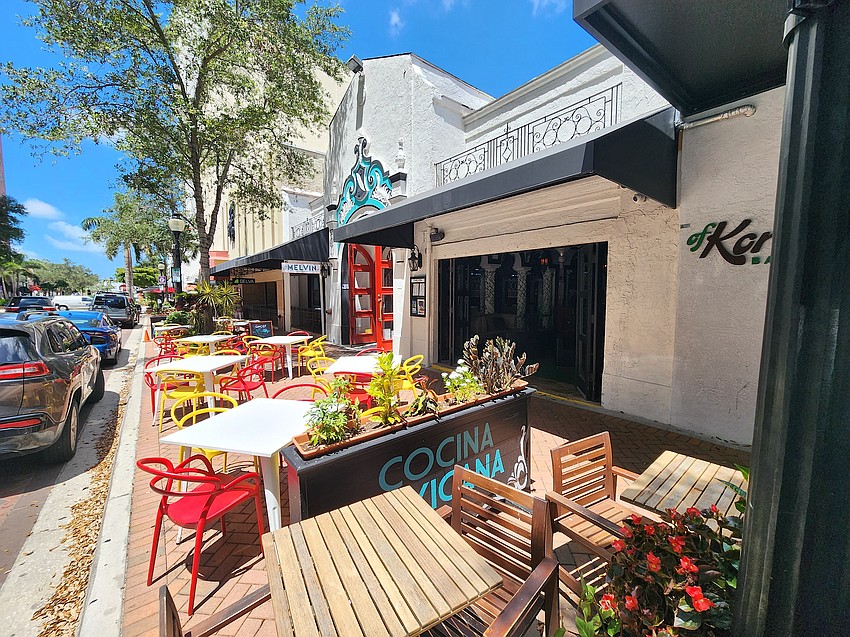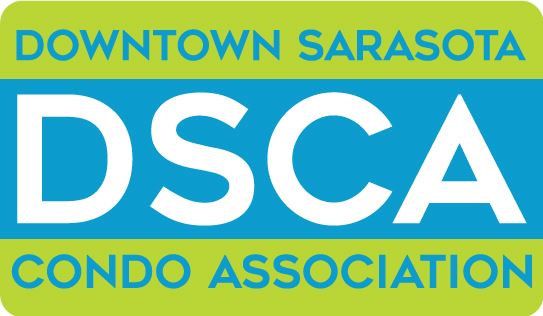A proposed zoning amendment would, in theory, clarify the definitions of restaurants, nightclubs, bars, etc. to establish different rules under which each may operate.
After gaveling in the Sarasota City Commission’s Dec. 5 workshop to discuss staff-proposed zoning text amendments for dining and drinking establishments in the downtown zoning districts, Mayor Liz Alpert suggested first tackling what she thought would be the easiest of the definitions — restaurants
Rather than serving as the appetizer, it turned out to be a full-course meal as commissioners got bogged down in a debate over whether a dining room that brings in prepared food from off-site — or a “ghost kitchen” — is really a restaurant.
Planning Director Steven Cover, City Attorney Robert Fournier and City Manager Marlon Brown attempted to interject that where the food comes from and how the public perceives that is not germane to how a restaurant is licensed relative to alcohol sales, but that did not dampen the debate.
“All they know is they go in, they order food, they get food,” Alpert said. "I don't think they care whether it's prepared on-site or off-site, so we make it way too convoluted and complicated by adding that you can't call yourself a restaurant because you bring in food because the public doesn't care.”
Vice Mayor Jen Ahearn-Koch disagreed.
What does the draft ZTA cover?
In summary, the draft ZTAs cover:
- Modified definitions: Amend definitions for bars, outdoor bars, nightclubs and bottle clubs. The reason for the change is to amend existing definitions to better regulate evolving uses and update description of use categories accordingly.
- Primary uses: Modify and create primary use tables and use standards for bars, outdoor bars, and nightclubs to allow them in certain zone districts. Reasons for the change are to update primary use charts for commercial, production intensive, special purpose and downtown zone districts and create additional use standards for new uses based on modified definitions.
- Additional use standards: Apply additional use standards for outdoor seating and other outdoor areas of establishments to uses including, but not limited to, restaurants, bars, outdoor bars, nightclubs, brewpubs, microbreweries, craft distilleries and wineries. The purpose is to update standards to require outdoor seating and other areas of outdoor establishments to meet the same regulations required for outdoor areas of restaurants.
- Use standards for sale of alcoholic beverages: Separation requirement for bars and nightclubs from a school or church/synagogue/sanctuary, a property residentially zoned, or another bar, outdoor bar, nightclub, or alcoholic beverage store within existing Downtown Exemption Area and expansion of exemption area. The purpose is to update separation requirement and expand exemption area to include redeveloping downtown commercial areas north of Fruitville Road and east of U.S. 301.
- Non-residential accessory uses, buildings and structures: Some accessory uses require additional standards and should be designed to minimize any adverse impact on adjacent properties. The purpose is to require outdoor bars that are accessory to restaurants, hotels/motels and private clubs to be allowed by minor conditional use.
“I think they do care. I think the industry cares. I think the businesses care,” Ahearn-Koch said. "If you walk into a restaurant and you sit down they say the only thing we serve is popcorn and olives, well you're not a restaurant and then they say, ‘No, we are because we went to Publix and we bought it, and here it is and this is our menu.’”
Alpert responded, “If the menu is popcorn and olives nobody's going to think that's a restaurant where they can order a meal. I just think that the public doesn't really care where the food comes from.”
Ahearn-Koch cited her example that the same definitions should not apply across the board. Hers was a consumer-facing argument that she also applied to fairness to restaurants that invest in kitchen equipment and food preparation personnel versus a dining room that imports food from a food truck or a commissary kitchen.
“The point of doing all this was to add clarity to what's the difference between a nightclub and a restaurant and a bar, and if we start out by having a restaurant that's not really a restaurant, people will walk in and think it's one thing and it's another,” Ahearn-Koch said. “Just like with the nightclub/restaurant situation where the real intention was a restaurant and (was) being called a nightclub. That causes massive confusion and unnecessary conflict, and what we should try to avoid is to create more confusion.”
Staff countered that Ahearn-Koch’s argument was outside the scope of the proposed ZTA, which is intended to clarify definitions of and draw contrasts between restaurants, nightclubs, bars, outdoor bars and bottle clubs and the different rules under which they may operate. Currently, those are determined by the state alcohol licensing permits that are inconsistent with the city’s definitions.
The initiative in part came about because of complaints that a small number of restaurants operate more like nightclubs after 10 p.m.
“There is this assumption from some the feedback we received that that any future restaurants or bars are going to be bad. That's simply not true," Cover said. "When we presented this to discuss earlier in the process, they indicated that they have no problems with 95% of the bars and bars and restaurants that are in downtown. There are only a select few that are really a concern.”
Recommendations in the ZTA include prohibiting establishments from opening doors or glass walls after hours and pumping amplified sound into the street.
Simply more complicated
What began as an attempt to simplify the city’s code because some restaurants operate as nightclubs and vice-versa became more complex as it worked its way through the public process and the Planning Board.
That became apparent to commissioners at its Nov. 6 regular meeting when, rather than voting on the ZTA decided to schedule the workshop for further discussion. As they debated what does or does not constitute an outdoor bar — more specifically an outdoor rooftop bar — and how their operations may or may not the disruptive to downtown residents, it became apparent the planning staff has more work to do before the matter comes back before the commission in January.

El Melvin on Main Street has in the past opened its folding glass doors late at night, drawing complaints from nearby residents of loud music. That practice would be classified as a nightclub under proposed zoning changes. Photo by Andrew Warfield
“I'm looking at the Oxford Dictionary and a 'restaurant' is a place where people pay to sit and eat meals that are cooked and served on the premises,” said Commissioner Erik Arroyo. “Many restaurants would rather just have a food truck in the back and work in conjunction with each other. I think simplification is the key, but also maybe we can expand the definition of a restaurant.”
Planning General Manager Ryan Chapdelain said staff perhaps missed the mark in its attempt at clarity while defining a restaurant.
“Maybe it's not working,” he said. “It wasn't a major issue before. We thought we were helping to clarify but if it's that's not working, we could just take it out. We haven’t really had issues with the restaurant definition. Again, we're just trying to add a little bit of clarity.”
Prior to moving on to discussing rooftop bars and an option to expand the exemption zone for bars and restaurants into emerging areas on the edge of downtown, Alpert summarized, “And I thought restaurants was going to be the easy one.”
What the zoning text amendment isn't
Sarasota Planning Director Steven Cover started the zoning text amendment workshop with a monologue about what the proposed redefinitions of restaurants, nightclubs, outdoor bars, rooftop bars and bottle clubs is not.
He said:
“It's not about public sidewalks or sidewalk cafe activity.”
“It's not about smoking or public sidewalk on our public sidewalks.”
“It's not about special events in the public right of way.”
“And particularly, it's not about noise. This is the one thing that keeps coming up over and over again. It has nothing to do with noise, has nothing to do with decibel readings. And it has nothing to do with enforcement of those decimal readings. I just wanted to make that clear.”
Cover also took exception to a characterization distributed via email that Sarasota is among the most dangerous cities in the state with regard to deaths by DUI, and that any regulation that may be perceived to relax permitting for alcohol service will only exacerbate the problem.
During the workshop, Cover produced data to refute that assertion.
"This is a report we received from our police department indicating that over the last four years, we've only had four total fatal crashes resulting from DUIs, and this year we have had zero, he said. "So I have to say if we're the most dangerous city in the state, this must be an awfully safe state.”
According to the Sarasota Police Department, out of 46 traffic fatalities from Jan. 1, 2020 through Nov. 28, 2023, four were from crashes involving DUIs; and out of 14 deaths through November of this year, none involved drunk driving.
What it is
According to the city of Sarasota planning staff, the zoning text amendments:
- Clarify definition and uses for bars, outdoor bars and nightclubs. Tying definitions to state licensing is not a reliable way to determine how an establishment will operate, which has resulted in establishments being classified as nightclubs that do not operate as such while those classified as restaurants operate as nightclubs into the evening.
- Regulate components of activities based on the new definitions and the intensity of the establishment including amplified entertainment and operating hours.
- Clarifies and expands existing additional use standards to apply to outdoor areas of alcohol-related establishments.
Article courtesy of The Observer, submitted 12/14/2023
Author: Andrew Warfield
https://www.yourobserver.com/news/2023/dec/14/sarasota-definitions-drinking-dining-establishments/
